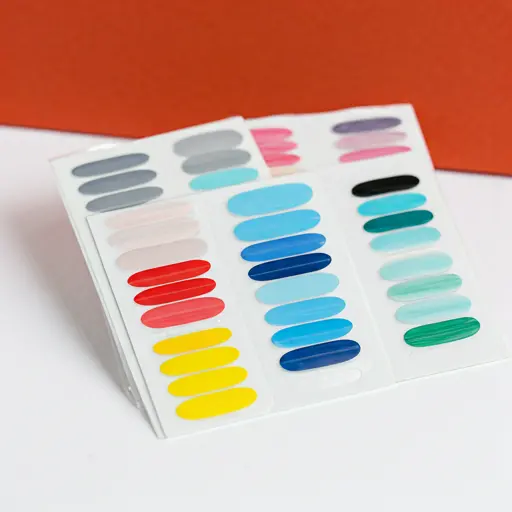How to Choose the Best Sunscreen for Your Skin Type
Protect your skin from the sun’s harmful rays. Learn how to choose the best sunscreen for your skin type with these helpful tips and tricks.
We all know that sunscreen is essential for protecting our skin from the harmful effects of the sun. However, with so many different types of sunscreen available, it can be challenging to choose the right one for your skin type. In this article, we will provide you with all the information you need to know to choose the best sunscreen for your skin type.
When it comes to sun protection, choosing the right sunscreen is crucial. Sunscreen protects your skin from harmful UV rays that can cause sunburn, premature aging, and even skin cancer. With so many types of sunscreen available, it can be tough to know which one to choose. In this article, we will guide you on how to choose the best sunscreen for your skin type.
Importance of Sunscreen
Before we dive into the specifics of choosing a sunscreen, it’s important to understand why it’s essential. Sunscreen protects your skin from harmful UV rays that can cause a wide range of issues. Sunburn is the most immediate effect of UV exposure, but it can also cause premature aging, skin discoloration, and even skin cancer.
The Importance of Sunscreen: Why You Should Always Wear It
Sunscreen is an essential part of any skincare routine, especially when it comes to protecting your skin from the harmful effects of UV radiation. Here are some of the reasons why you should always wear sunscreen:
Protection from Sunburn
One of the most immediate effects of UV exposure is sunburn. Sunburn can be painful and uncomfortable, and it can take several days to heal. Sunscreen helps to prevent sunburn by blocking the harmful UV rays that cause it.
Prevent Premature Aging
UV radiation can also cause premature aging, which can manifest as wrinkles, fine lines, and age spots. Sunscreen helps to prevent premature aging by protecting the skin from the damaging effects of UV radiation.
Reduce the Risk of Skin Cancer
Perhaps the most important reason to wear sunscreen is to reduce the risk of skin cancer. Skin cancer is the most common type of cancer in the United States, and exposure to UV radiation is a significant risk factor. Wearing sunscreen can help to reduce your risk of developing skin cancer.
Prevent Skin Discoloration
UV radiation can also cause skin discoloration, such as dark spots and hyperpigmentation. Sunscreen helps to prevent skin discoloration by protecting the skin from the damaging effects of UV radiation.
Overll, sunscreen is a crucial part of any skincare routine. It protects the skin from sunburn, premature aging, skin discoloration, and skin cancer. When choosing a sunscreen, make sure to consider your skin type, the level of UV exposure you’ll be experiencing, and your personal preferences to find a product that works best for you.
Understanding SPF
SPF stands for Sun Protection Factor, which is a measure of how well a sunscreen protects against UVB rays. SPF measures the amount of time it takes for your skin to burn when exposed to UVB rays compared to how long it would take without sunscreen. For example, if it takes ten minutes for your skin to burn without sunscreen, an SPF 30 sunscreen should theoretically prevent your skin from burning for 300 minutes (ten minutes times 30).
It’s essential to note that SPF only measures protection against UVB rays, which are responsible for sunburn. UVA rays also cause damage to the skin and can cause premature aging and skin cancer. Look for a sunscreen that offers broad-spectrum protection to ensure you’re protected against both UVA and UVB rays.
SPF: What It Is and How It Works
SPF is an abbreviation for Sun Protection Factor, which is a measure of a sunscreen’s ability to protect against UVB rays. UVB rays are responsible for sunburn and are the primary cause of skin cancer. Here’s what you need to know about SPF:
How SPF Works
SPF measures the amount of time it takes for your skin to burn when exposed to UVB rays compared to how long it would take without sunscreen. For example, if it takes ten minutes for your skin to burn without sunscreen, an SPF 30 sunscreen should theoretically prevent your skin from burning for 300 minutes (ten minutes times 30).
SPF and UVB Protection
It’s important to note that SPF only measures protection against UVB rays, which are responsible for sunburn. Sunburn is a visible sign of skin damage, but it’s not the only kind of damage that can occur from sun exposure.
UVA Protection
UVA rays are also harmful to the skin and can cause premature aging, skin discoloration, and skin cancer. Look for a sunscreen that offers broad-spectrum protection to ensure you’re protected against both UVA and UVB rays. Broad-spectrum sunscreens typically contain ingredients like avobenzone, oxybenzone, or Mexoryl SX.
Reapplication
Regardless of the SPF level, it’s essential to reapply sunscreen every two hours, especially if you’re swimming or sweating. Water-resistant sunscreens can provide protection for up to 80 minutes in the water, but it’s still important to reapply every two hours.
Overall, SPF is a measure of how well a sunscreen protects against UVB rays, which are responsible for sunburn. Look for a broad-spectrum sunscreen to ensure you’re protected against both UVA and UVB rays. And remember to reapply every two hours, even if you’re using a high-SPF or water-resistant sunscreen.
Types of Sunscreen
When it comes to protecting your skin from harmful UV rays, sunscreen is a must-have. However, not all sunscreens are created equal. There are two primary types of sunscreen: physical and chemical.
Understanding the Different Types of Sunscreen
Protect your skin from harmful rays – Understand the different types of sunscreen. Discover which type suits your skin and lifestyle best.
Physical Sunscreens
Physical sunscreens contain mineral ingredients like zinc oxide or titanium dioxide. These minerals create a physical barrier on the skin that reflects UV rays away from the skin. Physical sunscreens are often recommended for people with sensitive skin or those who are allergic to certain chemicals found in other types of sunscreens. One of the advantages of physical sunscreens is that they start working as soon as you apply them to the skin.
Chemical Sunscreens
Chemical sunscreens, on the other hand, contain organic compounds that absorb UV radiation and convert it into heat, which is then released from the skin. Some common chemical sunscreen ingredients include avobenzone, octinoxate, and oxybenzone. Chemical sunscreens tend to be thinner and more lightweight than physical sunscreens, making them a popular choice for everyday wear. It’s important to note that some people may experience skin irritation or allergic reactions to certain chemical sunscreen ingredients.
Water-Resistant Sunscreens
If you plan to spend time in the water or sweat a lot during outdoor activities, water-resistant sunscreen is the way to go. Water-resistant sunscreens can be either physical or chemical and are designed to stay on the skin longer, even when exposed to water or sweat. However, it’s important to reapply water-resistant sunscreen every 80 minutes or after swimming or sweating, whichever comes first.
Spray Sunscreens
Spray sunscreens are a convenient option, but they can be tricky to apply correctly. It’s important to make sure you’re using enough product and applying it evenly to all exposed skin. Sprays can also be harmful if inhaled, so it’s essential to spray in a well-ventilated area and avoid spraying directly on the face.
Overall, choosing the right sunscreen is essential to protect your skin from the harmful effects of UV rays. Consider your skin type, outdoor activities, and personal preferences when selecting a sunscreen that works best for you.
Choosing the Right Sunscreen for Your Skin Type
Choosing the right sunscreen for your skin type is essential for ensuring maximum protection and comfort. Here’s what to look for:
Oily Skin
If you have oily skin, look for a sunscreen that’s lightweight and non-greasy. Gel or lotion formulas work well, as they tend to be less heavy than creams. Look for a sunscreen labeled “oil-free” or “non-comedogenic” to avoid clogging pores.
Dry Skin
If you have dry skin, look for a sunscreen that contains hydrating ingredients like glycerin or hyaluronic acid. Cream or lotion formulas work well, as they tend to be more moisturizing than gels or sprays. Look for a sunscreen labeled “hydrating” or “moisturizing” to ensure maximum hydration.
Sensitive Skin
If you have sensitive skin, look for a sunscreen that’s free of fragrances and harsh chemicals. Physical sunscreens tend to be gentler on the skin than chemical sunscreens, so look for a sunscreen that contains zinc oxide or titanium dioxide. Avoid sunscreens that contain alcohol, as it can be irritating to sensitive skin.
Combination Skin
If you have combination skin, look for a sunscreen that’s lightweight and non-greasy, but also moisturizing enough to hydrate dry areas. Gel or lotion formulas work well, as they tend to be less heavy than creams. Look for a sunscreen labeled “non-comedogenic” or “for all skin types” to ensure maximum comfort.
Application and Reapplication
To get the most protection from your sunscreen, it’s important to apply it correctly and reapply it often. Here’s what to keep in mind:
- Apply enough sunscreen to cover all exposed skin.
- Apply sunscreen at least 15 minutes before sun exposure.
- Reapply sunscreen every two hours, or more often if you’re sweating or swimming.
Tips for Using Sunscreen
Protecting our skin from the sun’s harmful rays is important, and sunscreen is a great tool to help us do just that. However, using sunscreen correctly is crucial to ensure its effectiveness. Here are some additional tips for using sunscreen:
Apply Sunscreen Daily
Protecting our skin from the sun’s harmful rays is important, and sunscreen is a great tool to help us do just that. However, using sunscreen correctly is crucial to ensure its effectiveness. Here are some additional tips for using sunscreen:
Apply sunscreen every day, even on cloudy days
UV rays can penetrate through clouds and still harm our skin. Therefore, it’s essential to apply sunscreen every day, regardless of the weather.
Store Sunscreen Properly
Store your sunscreen in a cool, dry place to prevent it from breaking down
High temperatures can cause sunscreen ingredients to break down, making the sunscreen less effective. So, it’s essential to store your sunscreen in a cool, dry place to keep it stable and effective.
Check Expiration Dates
Check the expiration date of your sunscreen before using it
Expired sunscreen loses its effectiveness, so it’s important to check the expiration date before using it. If it has expired, it’s time to buy a new one to protect your skin from the sun’s harmful rays.
Sunscreen Myths Debunked
There are many myths and misconceptions surrounding sunscreen. Here are some of the most common ones:
- Myth: You don’t need sunscreen on cloudy days.
- Fact: UV rays can penetrate clouds, so it’s still essential to wear sunscreen on cloudy days.
- Myth: Sunscreen causes skin cancer.
- Fact: There is no evidence to support the claim that sunscreen causes skin cancer. In fact, sunscreen can help prevent skin cancer by protecting your skin from UV damage.
Conclusion
Choosing the right sunscreen for your skin type is essential for protecting your skin from the harmful effects of the sun. Make sure to choose a sunscreen with a broad-spectrum SPF of 30 or higher, and remember to apply it correctly and often. With these tips, you can enjoy the sun safely and confidently.
FAQs
Is it necessary to use sunscreen every day?
Yes, it’s essential to use sunscreen every day, even on cloudy days.
Can sunscreen expire?
Yes, sunscreen can expire, so it’s important to check the expiration date before using it.
What does SPF mean?
SPF stands for “sun protection factor” and measures the level of protection against UVB radiation.
Can I use the same sunscreen on my face and body?
It’s best to use a sunscreen that’s specifically designed for the face on your face, as it’s often more lightweight and less likely to clog pores.
Can I skip sunscreen if I’m only going to be outside for a short time?
No, it’s still important to wear sunscreen even if you’re only going to be outside for a short time. UV rays can still cause damage in a short amount of time.







